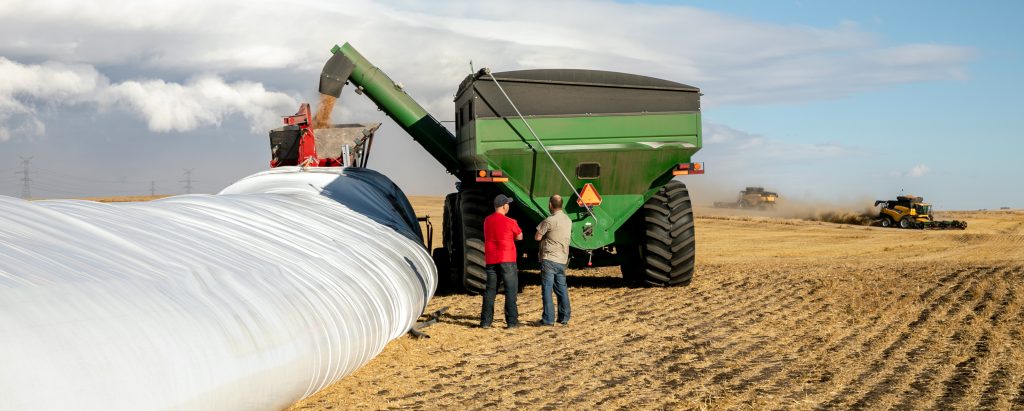AB Direct - Steers
Rail: ---
AB Direct - Heifers
Rail: ---
US Trade- Steers
Rail: 290.00 (IA)
US Trade - Heifers
Rail: 290.00 (IA)
Canadian Dollar
0.02

Can the ag sector achieve zero plastic waste on the farm?
Cleanfarms and the Alberta Agricultural Plastics Recycling Group (APRG) are publishing a series of information articles for Alberta farmers to develop a shared understanding of the importance of used agricultural plastics resource management.
Modern farming utilizes technologies and innovative products that can help farmers operate efficiently with a goal of higher productivity yields in both crops and livestock.
Some of these tools are well known in today’s farming operations and include items made of plastic, such as grain bags and baler twine, as well as plastic containers – jugs, drums and totes – that are used to deliver products such as pesticides and fertilizers. While these are convenient and sometimes essential tools around farms, they can be difficult to manage when they are empty. However, innovative ideas from industry and farmers can lead
to better outcomes for managing these materials.
Waste analysis studies in the province estimate that Alberta farmers generate just over 14,000 tonnes of various types of ag plastic annually, which is about the same as Saskatchewan, and includes containers, grain bags, plastic baler twine, bale wrap, silage bags and bunker covers.
Many farmers have shared their preference for options that avoid ‘use and discard’ practices, but admit they are challenged to find alternatives. More and more, they look to the manufacturers of these products and packaging to offer solutions to the mounting volume of plastics used to deliver crop input products or to store and preserve harvested crop and livestock fodder.

Attitudes about managing these used materials are shifting not only on the farm, but within ag industry circles, as well. Many manufacturers of ag products using plastics fund recycling programs available to farmers through Cleanfarms programs to advance the circular economy for plastics. The circular economy considers all aspects of the product design to minimize unnecessary products, and design materials that can be reused or recycled, keeping them in the economy and out of the environment. The Government of Alberta has already committed to advancing a circular economy for all plastics in the province.
Ultimately, the goal is to achieve zero plastic waste in the agricultural sector meaning that for farmers, these materials can be used efficiently, never becoming waste, which contributes to positive on-farm stewardship.
“The impact for Alberta farmers is two-fold. We can operate our farms with less clutter, keeping both the outbuilding areas and the land free of plastic materials and we can contribute to a more sustainable, environmentally responsible farm operation for ourselves and our families. Recycling programs are a significant step in protecting the future in the ag sector,” said Dean Hubbard, an Alberta wheat farmer and APRG member.
Cleanfarms is operating a three-year pilot project for grain bag and baler twine recycling in Alberta. The project is led by the multi-stakeholder APRG. Funds were granted by the Government of Alberta and are being administered by Alberta Beef Producers.
Leave a Comment
Add abpdaily.com to your home screen
Tap the menu button next to the address bar or at the bottom of your browser.
Select ‘Install’ or ‘Add to Homescreen’ to stay connected.



Share this article on
About the Author
Cleanfarms is an agricultural industry stewardship organization that contributes to a healthier environment and a sustainable future for Canadian agriculture by developing and operating programs across Canada specifically for farmers that collect used ag plastics for recycling, as well as other ag-related used and unwanted materials for recycling or safe disposal. The Agricultural Plastics Recycling Group (APRG) was formed in 2017 and comprises more than 20 organizations representing agricultural producers, retailers, manufacturers, municipalities, non-profits and others. The group is committed to finding solutions to manage agricultural plastics. aprg.ca